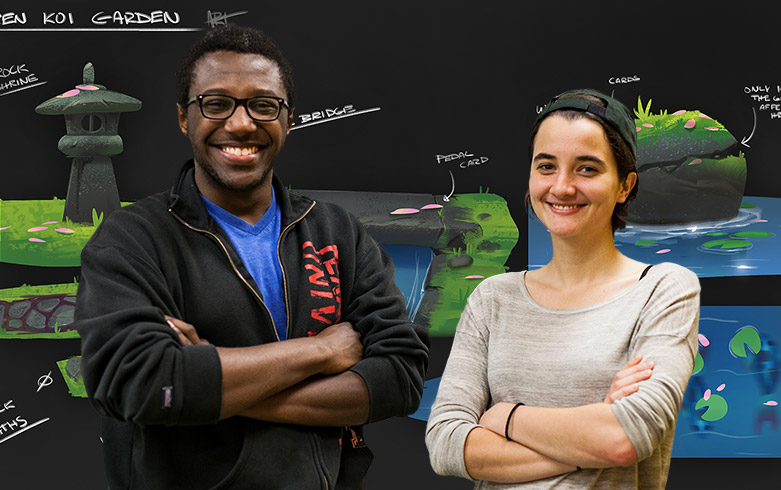Level Design
Level design encompasses a variety of skills from composition, to gameplay design, to visual scripting. As a level designer, students learn how to build a level from conception to shippable.

You’ll learn how to plan your levels at an industry standard, which include things such as level design layouts and outlines. You will also learn about game design theory, designing levels for optimal gameplay, and visual scripting. This is where concepts such as flow, pacing, and psychology come into play. Once you master the art of white-boxing a level, you’ll learn about level art, composition, and lighting to fully bring your levels to life, while keeping them optimized for performance.
Explore Further
Technical Design
One of the most invigorating sweet spots on a project is gameplay. It is a complex enterprise, requiring equal parts of creativity and technical know-how. Oftentimes, game studios tackle this challenge with interdisciplinary teams. However, another growing solution is cultivating developers that can grapple with both (often disparate) disciplines.

Our technical design curriculum builds both skills to empower students to become influential within the overall design, but also crucial to its implementation. This is achieved primarily through a focus on gameplay programming, typically via systems that are less intensive from a coding standpoint but critical to the player experience.
Explore Further
Project Management
The overall purpose of the Project Management specialization is to train students in the strategic and organizational aspects of video game development. It focuses on a variety of soft skills, from leadership techniques to presentation skills, development methodologies, scheduling, strategic feedback methods, and task estimation, prioritization and delegation.

Additionally, Project Management students are introduced to the necessary tools of their trade, especially task tracking software and Excel. Combined with in depth exercises of process analysis, the overall goal of Project Management students is to learn the essentials that are necessary to become tomorrow’s leaders.
